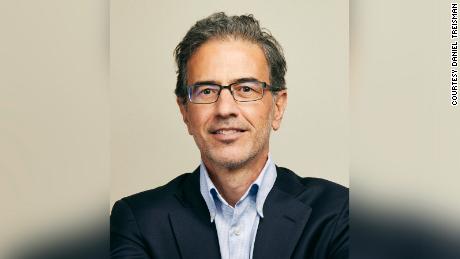Daniel Treismanis a professor of political science at UCLA, a Fellow at the Center for Advanced Research in Behavioral Sciences. He is Stanford and co-author of "Spin Dictator: The Changing Face of Tyranny in the 21st Century." The opinions expressed in this commentary are his own. See moreOpinionson CNN.
(CNN)When President Joe Biden meets European leaders at the G7 and NATO summit in the next few days, everyone Unity. They will be cut off their work for them.


Back in February, the West is in the world A determined rally behind Ukraine in the face of Russia's brutal assault. From Washington to Warsaw, leaders of the entire political spectrum rarely seemed to sing in harmony.
After four months, what is surprising is how quickly the division resurfaced, both nationally and internationally.
Next week Biden's job is to revive the spirit of February. New disagreements can undermine efforts to support Ukraine, while Russia's President Vladimir Putin develops a sense that he is on his side at times.
With inflation soaring, Covid-19 has changed and the economy is on the verge of recession, with Western leaders barely looking up at their mission to protect the free world.
This picture of division and confusion is even more worrisome, as Putin almost certainly overreads it.
Like his friend Xi Jinping, President of the People's Republic of China, Russian leaders have believed for years that Western nations have declined, become dysfunctional, and are self-attached. .. Domestic political battles, election turmoil, and quarrels between allies all attack such dictators as a sign of weakness.
What such leaders are unaware of is that democracy's strength lies in its ability to handle discrepancies rather than clear them under the carpet. Attempting to impose unity by Fiat creates a fragile order of the Simulakura phenomenon. They also blind the leader to the true state of public opinion.
To be successful, the country needs to build unity, not forge it. But that doesn't happen automatically. And it takes time. If the characteristic weakness of the dictatorship is that leaders tend to lose contact with reality, the corresponding drawback of democracy is that they take too long to stand up.
When they act, democracy can mobilize far greater energy and innovation than the enemy. However, they often start so late that costs have already risen to uncertain levels.
That is where leadership is born. The biggest challenge for politicians is to combat system failures. A dictator who is informed and critical is likely to survive. Democratic leaders who inspire his people (and his allies) to tackle the oncoming issues early deserve special historical recognition.
Biden has shown his determination to respond quickly to Putin's attack. His team showed greatness in preparing sanctions and rallying the West early on. Now, as the division reappears, he needs to do more-explain that he is at stake, form opinions at home and abroad, and maintain a coalition to continue to flow aid to Kyiv. increase.
The danger in the coming months is that the distracted and diverted West will not be able to get the weapons Ukraine needs fast enough to defeat Russia.
It cannot be achieved. Our advantage in this contest is that we don't have to be afraid of division. After all, they are our strength. But they must be bridged by competent and energetic leadership. That's what democracy and its great politicians do. Epluribusunum.


